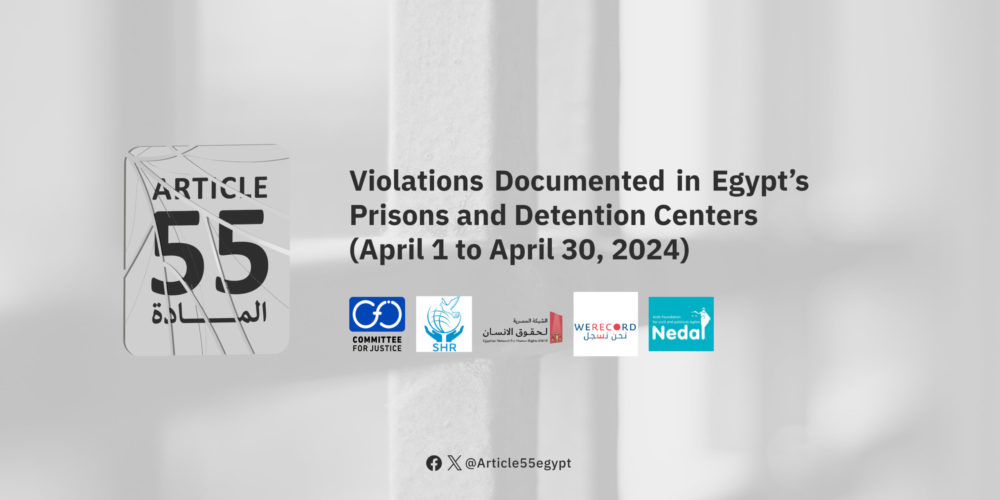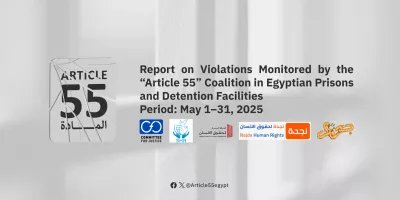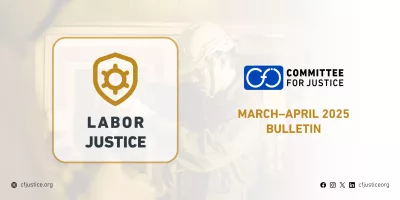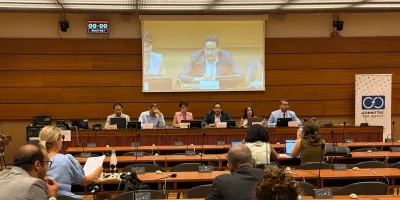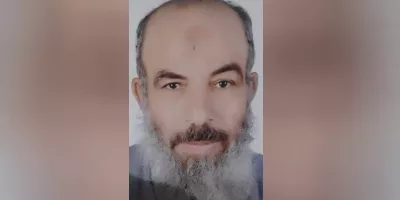The Article 55 coalition has released its monthly bulletin for April 2024, in which it documented the latest updates on the human rights, political, and legal situation in Egypt, focusing on the major violations suffered by detainees within the detention centers and prisons.
April developments:
According to the bulletin, less than a week after the beginning of the month, which marked President Abdel Fattah el-Sisi’s oathtaking for his third and final term, the Supreme State Security Prosecution listed four new defendants to the case known in the media as the “Support for Palestine” case. Additionally, the Supreme State Security Prosecution ordered the detention of five individuals for collecting endorsements to establish the Hope Current Party, which was being set up by former presidential candidate Ahmed Al-Tantawi. Security forces also arrested 17 activists who participated in a Gaza and Sudan solidarity protest outside the headquarters of UN Women in Cairo. The activists were forcibly disappeared overnight before appearing before the Supreme State Security Prosecution the next day and being released on bail.
Security forces also arrested labor activist Shady Mohamed in front of his home after returning from work, targeting him for his union activities. This was not the first time he had been targeted. The Supreme State Security Prosecution also refused to release workers detained in connection with the Ghazl El-Mahalla strike since February 2024.
During the month, the Minister of Interior issued two decisions to establish four new prisons within police stations in the Sohag and Luxor governorates and two in the Fayoum governorate to implement light sentences.
Internationally, the U.S. Department of State released its report on the human rights situation in 200 countries, indicating that the human rights situation in Egypt remains unchanged, with ongoing violations.
Regarding judicial developments in April 2024, new final death sentences were issued against defendants in the “Muslim Brotherhood’s Specific Committees in Menoufia” case. At the beginning of the month, independent UN experts called on the Egyptian government to halt the execution of seven final death sentences in another case, “Helwan Brigades.” The Nasr City Misdemeanor Court of Appeals also upheld a suspended one-year prison sentence against Yehia Hussein Abdel Hadi, founder of the Civil Democratic Movement.
In terms of legal developments, the Cabinet approved a draft law to establish economic criminal appeals courts similar to criminal courts, organizing the formation of the primary and appeals circuits of the economic courts in preparation for submission to the parliament.
Violations within detention centers and prisons:
The coalition organizations documented the death of Mohamed Mahmoud Gad, who was detained at one of the facilities in the new Badr Prison Complex His death was due to the denial of necessary medical care, despite his heart condition. He suffered a stroke, was transferred to the prison hospital, where he passed away.
The coalition also documented a plea from the mother of detainee Badr Mohsen Abdullah El-Hadi, who has been detained for seven years since he was 17, complaining of mistreatment amounting to torture at the Abu Zaabal prison’s “Rehabilitation 3” facility by Chief Investigator Islam Abdel Latif.
A leaked letter from the high-security Minya prison reported severe violations against detainees, under the supervision of Chief Investigator Ahmed Sadqi, Warden Ahmed El-Khouli, and Investigator Khaled Abu Stait with the assistance of informants.
The bulletin also reported that Ahmed Mohamed Abdel Ghani declared a hunger strike after experiencing severe violations at the Ibrahimia police station in Sharqia governorate. Abdel Ghani has been repeatedly detained on various charges since his arrest in January 2019. Another detainee, Hassan Abdel Hamid Hassan, has continued his hunger strike since the beginning of Ramadan, protesting his pretrial detention, which has entered its fifth year, in retaliation against his brother-in-law, opposition media figure Tamer Gamal, known as “Atwa Kenana.”
Regarding collective violations, the coalition reported that detainees at Wadi El-Natrun 1 refused to accept the prison meals for at least four consecutive days. This protest was in response to their poor treatment and the escalation of violations against them. They demanded an end to the denial of their basic legitimate demands.
Demands of the coalition:
In light of all the aforementioned, the Article 55 coalition believes that the conditions inside prisons and detention facilities are not surprising and fall within the general framework of how Egyptian authorities handle the detainee files—especially the political ones—as the matter is systematic and not just individual violations as promoted by the Egyptian Ministry of Interior.
The policy of impunity practiced by the Egyptian authorities towards human rights violators within their detention facilities has encouraged, fueled, and spread these practices until they have become a method of action for the Egyptian Prisons Authority; thus, no leadership or officials have been punished or even reprimanded despite documented and significant violations.
Therefore, the coalition affirms that these practices within prisons and detention facilities in Egypt raise serious concerns about the fate of detainees, especially following the recent increase in the number of deaths within detention facilities and the deterioration of living conditions inside.
Thus, the organizations call for an investigation into these violations and to hold those responsible accountable according to the correct Egyptian and international law, applying the United Nations Standard Minimum Rules for the Treatment of Prisoners and the Egyptian Prison Regulations, stopping their violations, and providing living conditions worthy of the humanity of detainees

